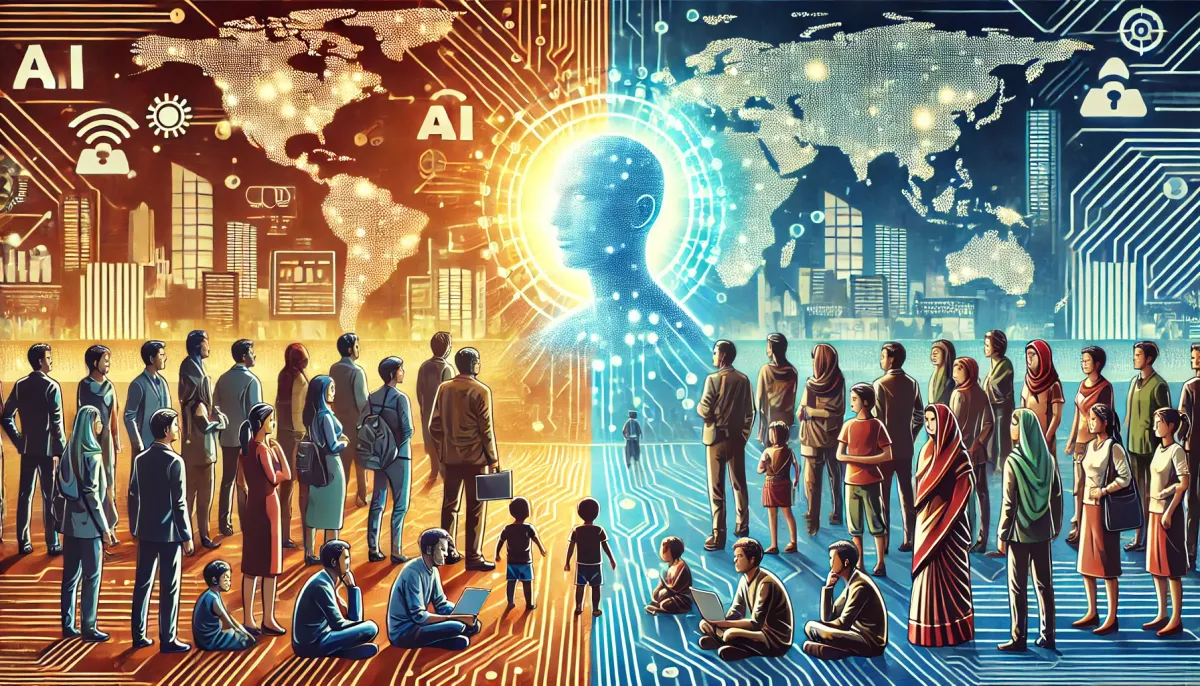UN Report Highlights Inequities in AI Development, Calls for Global Cooperation and Governance

UN Report on AI Development and Disparities
Disparity in Computational Power and Access to AI Resources
The latest UN report highlights a significant disparity in computational power between Big Tech companies, state entities, and smaller startups. One of the key findings indicates that companies with substantial resources have a commanding advantage due to their access to superior computational power, which is essential for sophisticated AI development. This gap widens the digital divide, leaving startups and entities in developing countries struggling to make similar advancements.

Furthermore, the report underlines the uneven access to essential AI resources such as training datasets and computational infrastructure. Particularly, countries in the global South face substantial hurdles that restrict their ability to innovate and grow in the AI sector. This widespread inequality stifles local talent and innovation, keeping these regions at a permanent disadvantage in the rapidly evolving tech landscape.
Dominance by Big Tech and Regulatory Challenges
A predominant theme in the UN report is the dominance of AI development by a few Big Tech companies and richer nations. These entities possess the financial and technological clout to monopolize AI advancements. Consequently, startups and developing nations find themselves significantly disadvantaged, further entrenching global economic and technological inequalities.
The regulatory environment for AI also presents formidable challenges. The fragmented and complex regulatory frameworks across different regions impact the capacity of startups to innovate and climb the ranks. In regions with stricter regulations, startups struggle immensely to navigate these landscapes, which stifles their growth and potential to scale up.
Recommendations for Global Cooperation and Governance
In light of these inequities, the UN’s High-Level Advisory Body (HLAB) on AI stresses the need for international governance to ensure equitable distribution of AI benefits. It recommends the creation of a global marketplace for anonymized data and the promotion of data commons to facilitate a more balanced development of AI technologies.
In addition, the HLAB proposes the establishment of a network for capacity building under common-benefit frameworks. Interoperability for international data access must also be ensured while creating mechanisms to compensate data creators in ways that respect their rights and contributions.
Addressing the Digital Divide and Ethical Concerns
The report vividly details how the uneven adoption of AI exacerbates existing economic and social inequalities. As the global economy pivots towards AI-driven production and innovation, developing countries risk being sidelined, furthering economic disparities and stymieing their prospects for growth in this new era.
Human rights and ethical concerns sit at the core of the global discussion on AI. Issues such as biases in AI algorithms, surveillance, and the potential militarization of AI through autonomous weapons raise critical ethical and legal questions. It is imperative that global governance frameworks address these challenges to safeguard human rights and ethical standards.
Proposal for a Global AI Fund
To mitigate the adverse impacts and to bridge the resource gap, the report suggests the formation of a global AI fund. Such a fund would support developing nations in accessing AI models, computational resources, and training programs, thereby propelling their capabilities in AI development.
Ultimately, this proposed fund aligns with the UN’s broader sustainable development objectives, which include ambitious goals such as eradicating poverty and ensuring quality education for all. By leveraging the potential of AI equitably, the global community can make significant strides towards achieving these pivotal objectives.

